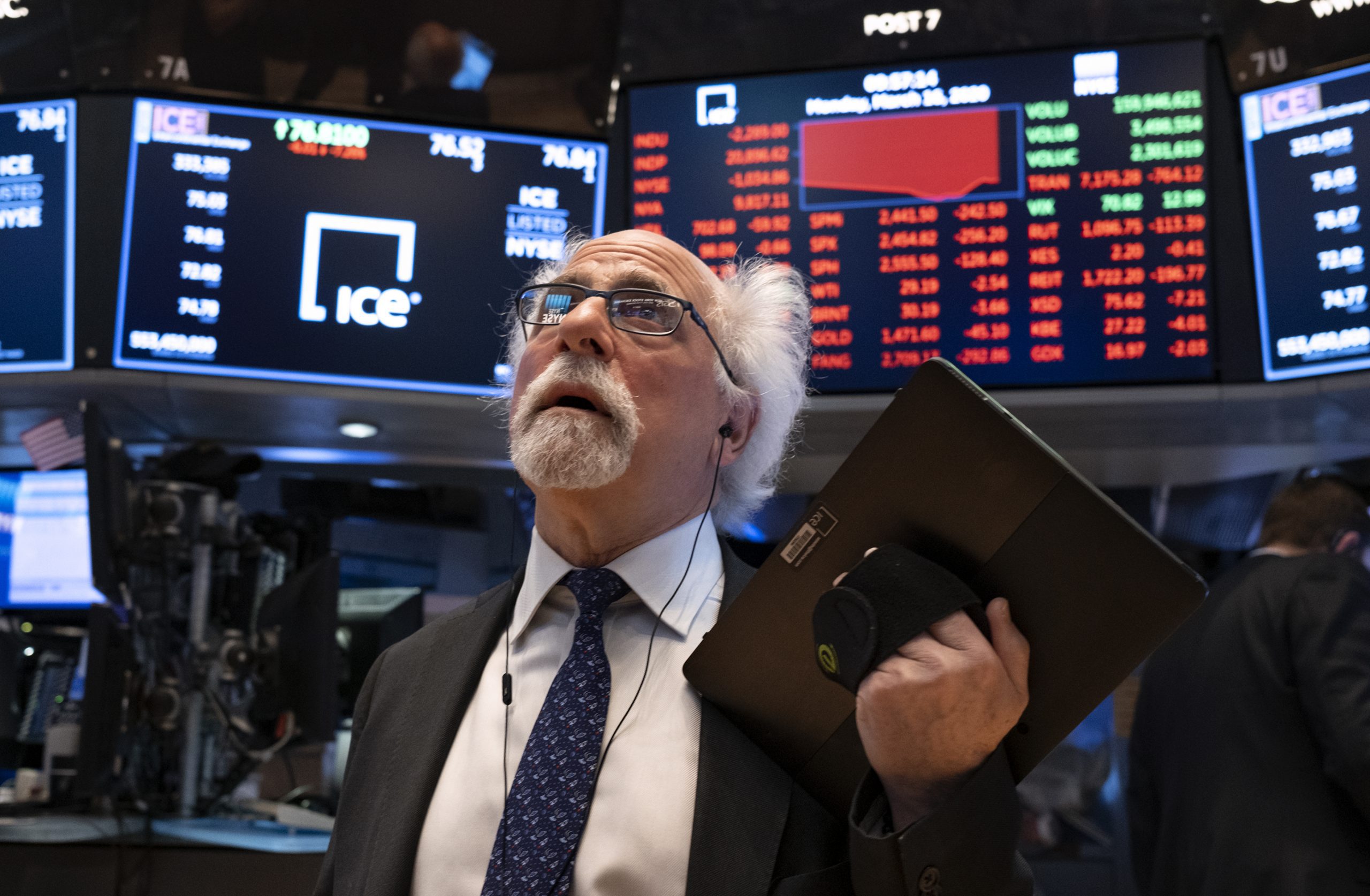Global financial markets are showing signs of increased caution, causing stocks to decline.
The S&P 500 began with a 1% decline in early trading, reflecting losses in European and Asian stock markets.
As of 9:50 a.m. Eastern time, the Dow Jones Industrial Average had fallen by 370 points or 1% to reach 35,102. Meanwhile, the Nasdaq composite was down 1.3%.
Moody’s downgrade of credit ratings for several smaller and mid-sized U.S. banks led to a drop in bank stocks. The credit rating agency expressed concerns about the financial strength of these banks.
In Asia, the Hong Kong stock market decreased by 1.8%, and the Shanghai stock market dropped by 0.3% following a report that indicated China’s economy had experienced the largest decline in exports since the beginning of the pandemic in 2020.
These market concerns are compounded by mixed earnings reports from major U.S. companies.
United Parcel Service (UPS) shares fell by 3% after the company lowered its revenue forecast for the year. While the company reported stronger profits for the spring, its revenue was weaker.
Eli Lilly, however, managed to mitigate the market losses by surging 16.4%. The pharmaceutical company exceeded analysts’ expectations for both profit and revenue during the spring.
Further market volatility is expected in the near future.
Later in the morning, the U.S. government will release job opening data for June, providing insights into the resilience of the job market.
Economists anticipate another report to reveal ongoing challenges in U.S. manufacturing due to higher interest rates.
With the Federal Reserve’s recent increase in its main interest rate, the central bank aims to manage inflation. However, high interest rates have negatively affected various sectors, particularly banks. The quick rise in rates has hurt industry profits and devalued investments made during periods of lower rates.
This environment contributed to high-profile bank failures earlier in the year and has increased concerns about banks with substantial commercial real estate loans, which are suffering due to the lingering threat of a U.S. recession and the continuation of remote work trends.
Big banks hit
The implications of Moody’s credit rating cut have also impacted larger banks. JPMorgan Chase shares fell by 2%, significantly impacting the S&P 500 index.
In the coming days, the U.S. government will release data on consumer and wholesale inflation, potentially influencing the Federal Reserve’s future decisions regarding interest rates.
Market participants are hopeful that the decline in inflation since its peak last summer will convince the Federal Reserve that inflation is under control, reducing the need for further rate hikes.
Economists project that July’s consumer prices will rise by 3.3% compared to the previous year, which represents an acceleration from the 3% increase reported for June.
Inflation challenge
Despite this optimism, some economists and investors caution that achieving the Fed’s target of 2% inflation moderation may be challenging. They argue that Wall Street may have prematurely embraced the idea of a “soft landing” for the economy and that the strong performance of the S&P 500 index in the first seven months of the year may have been excessive.
In response to the market’s uncertainty, investors are flocking to safer investments, causing Treasury yields to fall. The 10-year Treasury yield dropped to 3.98% from 4.10%, impacting mortgage and loan rates. The two-year Treasury yield, which closely reflects expectations for the Federal Reserve’s actions, decreased to 4.73% from 4.79%.



 News3 days ago
News3 days ago


 Leaders3 days ago
Leaders3 days ago


 Shows3 days ago
Shows3 days ago


 News3 days ago
News3 days ago


 Docos5 days ago
Docos5 days ago


 Leaders4 days ago
Leaders4 days ago


 Leaders4 days ago
Leaders4 days ago


 News2 days ago
News2 days ago





